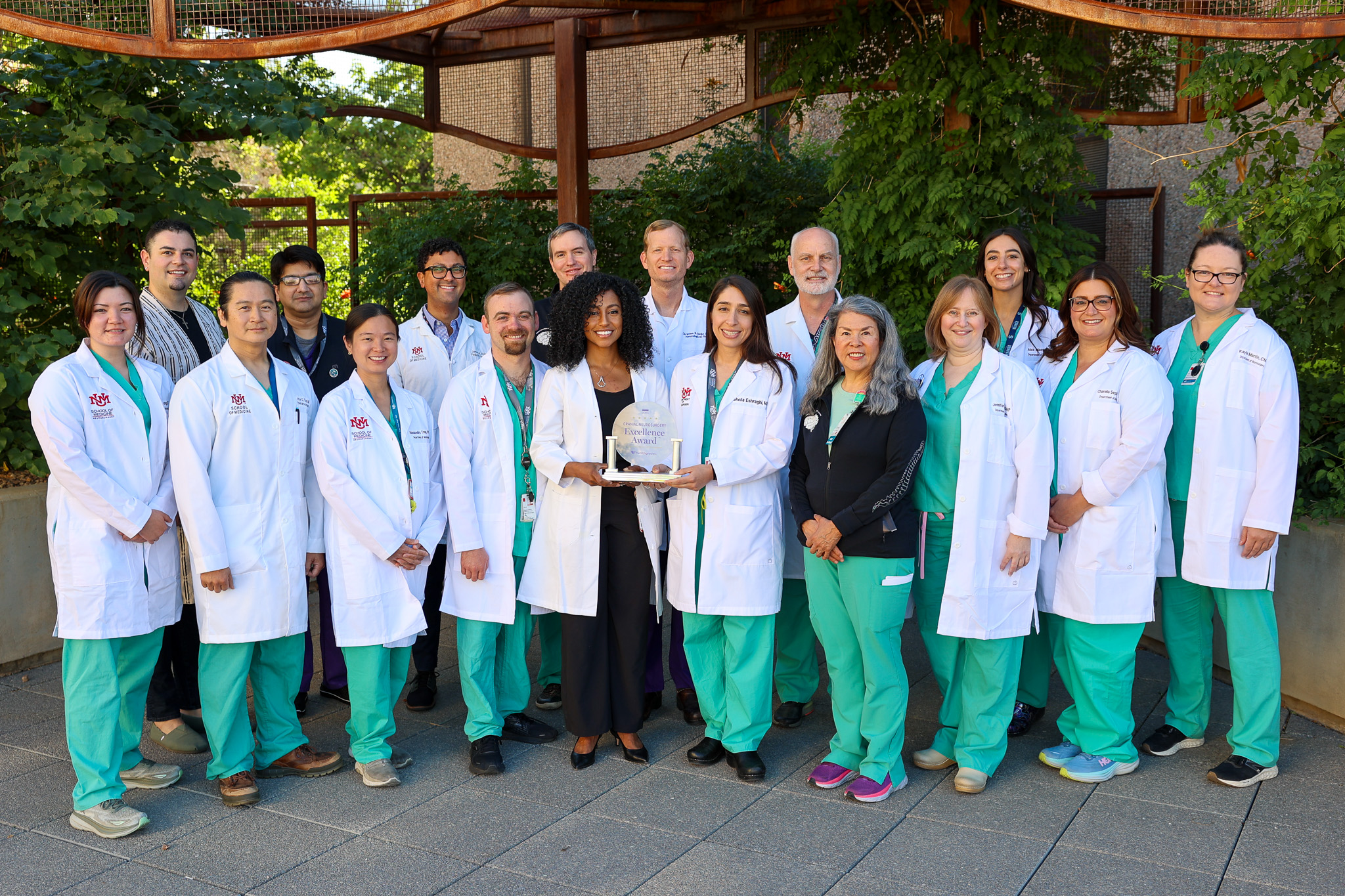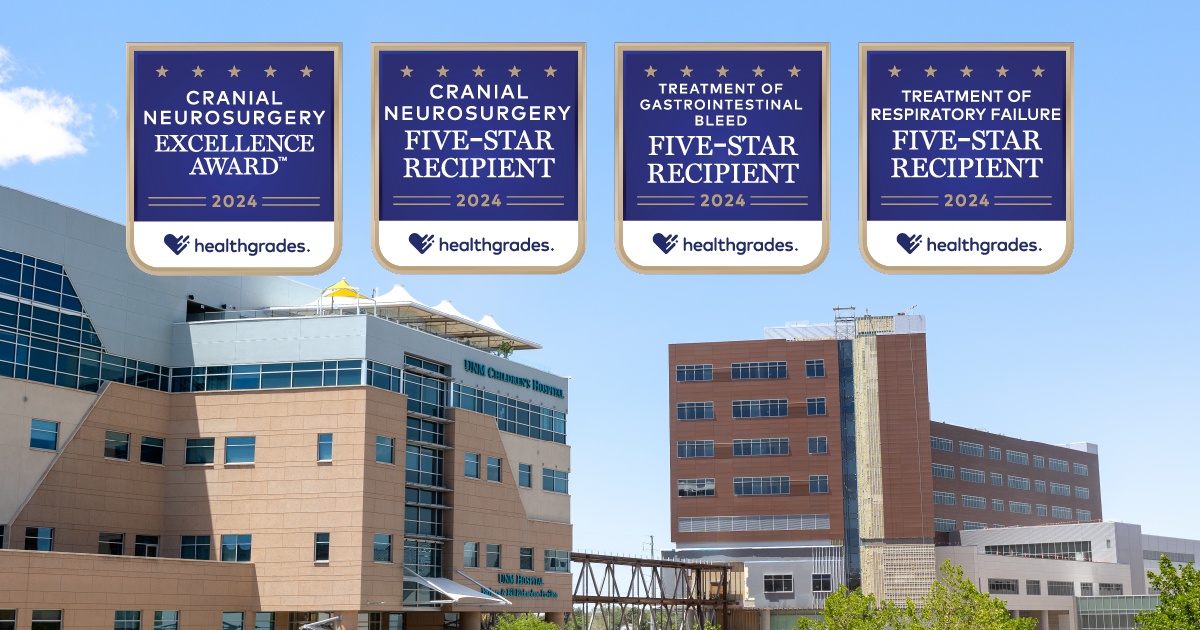The University of New Mexico Hospital has received national recognition in three specialty care areas—distinguishing it as one of the country’s leading hospitals in clinical care.
Healthgrades awarded UNM Hospital a 2024 Cranial Neurosurgery Excellence Award™ making it among the top 10% hospitals in the nation for cranial neurosurgery in 2024. Healthgrades Specialty Excellence Awards recognize the nation’s leading hospitals across 18 specialty care areas.

Healthgrades also recognized UNM Hospital for three, 5-star achievements for cranial neurosurgery, treatment of gastrointestinal (GI) bleed and treatment of respiratory failure.

“We are honored to receive these designations from Healthgrades and they are really a testament to the amazing work and dedication of our clinicians and staff.”
“Our team works really hard every day to ensure the best care possible for all our patients,” said Kate Becker, CEO of UNM Hospital. “We are honored to receive these designations from Healthgrades and they are really a testament to the amazing work and dedication of our clinicians and staff.”
UNM Hospital is the only hospital in New Mexico to achieve the following awards by Healthgrades:
- The Cranial Neurosurgery Excellence Award in 2024
- A Five-Star for Treatment of Respiratory Failure in 2024
- A Five-Star for Treatment of GI Bleed in 2024
Healthgrades evaluates hospitals solely on clinical outcomes: risk-adjusted mortality and complications. The 2024 hospital assessment evaluated patient mortality and complication rates for 31 common conditions and procedures at approximately 4,500 hospitals nationwide to identify the top performers.
UNM’s critical care team has been Healthgrades five-star recipient for treatment of respiratory failure for four years in a row (2021-2024).
Rohini McKee, MD is chief quality and safety officer of the UNM Health System. She said quality and safety is something everyone at UNM Hospital makes a priority. McKee added that these rankings from Healthgrades are good news for patients.
“If I was a patient, it would help give me a level of confidence in the care that I know I'm going to receive at UNM Hospital,” McKee said. “It does not surprise me that we have received the respiratory failure award four years in a row. One of the things we do the best here at UNM Hospital is critical care. We take care of the sickest patients in our state, we take care of the most severely injured patients in our state. We staff our Intensive Critical Care units (ICU) with the highest level of expertise - physicians who are trained in critical care medicine and those units are staffed 24/7. That translates into better care for our patients.”
McKee says for UNM Hospital to receive a 5-star rating for treating respiratory failure indicates that there are effective systems in place to take care of critically ill patients when they need it most.
“It's one of those indicators that is pertinent to everybody and really speaks to not just one area or one system working well but to a broader array of systems working well,” McKee said. “Respiratory failure is something you can see in your emergency room, in critical care spaces, and on your floor. So, the key is, are you recognizing it quickly, and are you reacting to it-- not just quickly, but in the right way to maximize survival?"
Michelle Harkins, MD, is the associate chief of the Center for Adult Critical care for the UNM Health System. The critical care team is made up of a multi-disciplinary group of 50 doctors and nearly 20 advanced practice providers certified in particular critical care subspecialties all working together to take care of patients.
“We see a broad encompassment of patients really at the crux point of their life. They're critically ill, at risk of death,” Harkins said. “The Healthgrades really speak to our collaborative approach and our processes for timely care; from escalating the care level up for patients if they're getting sicker and working together to improve the outcomes of patients who end up with respiratory failure.”
So, Harkins said while no one wants to end up in the ICU, being at UNM Hospital can make all the difference.
“We are a multidisciplinary team of people caring together for the patient, I can’t emphasize that enough,” Harkins said. “While it's scary to be in the ICU, I do tell my patients that while it's the worst place to be, it's also the best place to be because of our team approach and how we really have the resources to take care of these patients quickly.”
